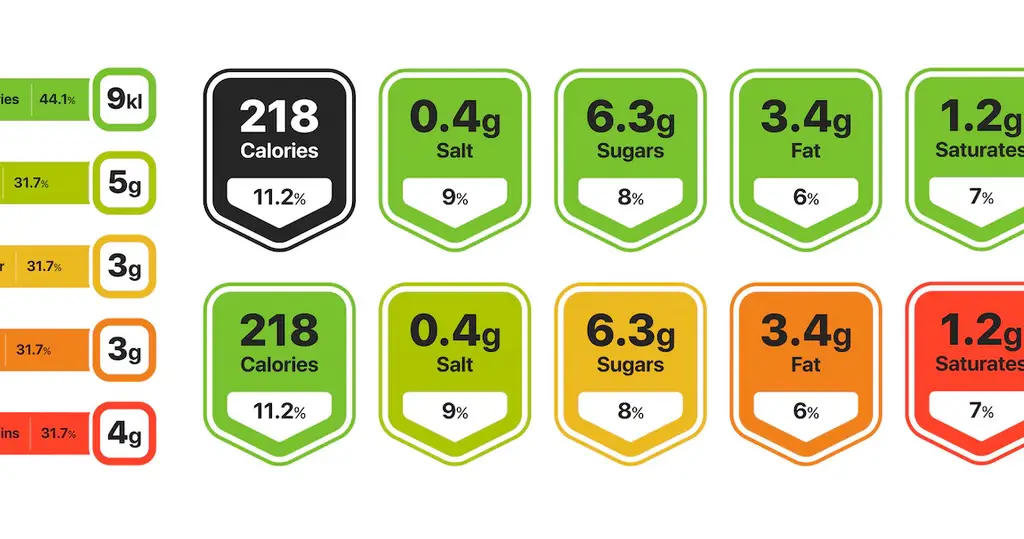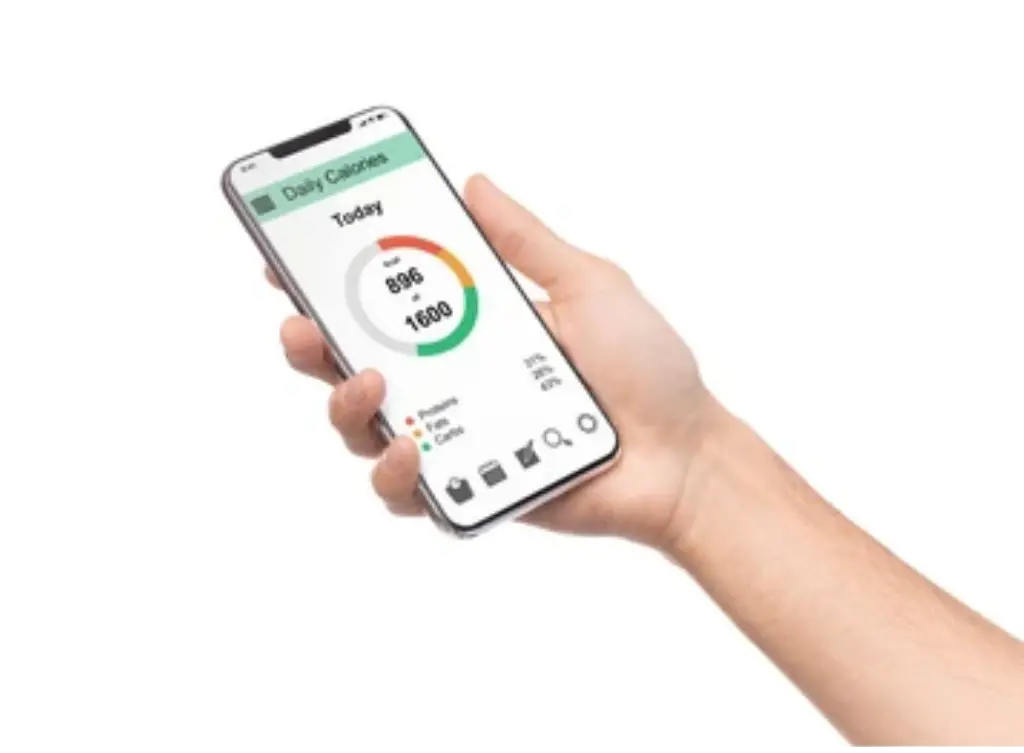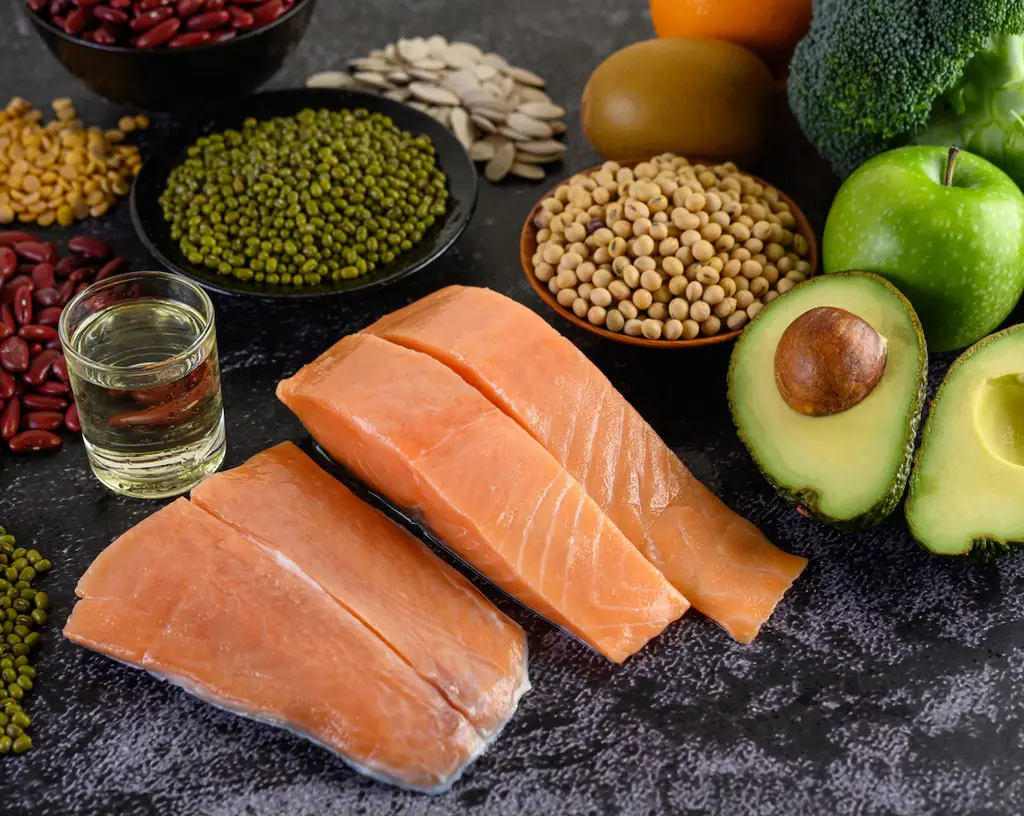Let’s face it: Everyone needs to watch their weight. The fats and carbs in our diet have a big impact on how much weight we gain. Thankfully, that means it’s also something we can measure and track more closely.
A healthy diet combined with regular exercise is the best way to manage your weight, but everyone could use some help keeping track of exactly what they’re consuming. There are lots of online tools that make tracking calories easier than ever.
This article will introduce you to the calorie calculator and show you how to use the calorie calculator effectively for weight loss or maintenance.
Related
- How Many Calories Does It Take to Burn Off a Big Meal?
- What Is a Calorie: An Introduction to the Basics of Calories
- Top 10 Best Fitness Trackers for Bodybuilding
Calories: Different Kinds and Their Effects
A calorie is a unit of energy. In nutrition science, we call these “kilocalories,” or kcal for short. It’s actually a bit more complex than that, but we don’t have to worry about the details. We can break down the different types of calories and their effects on the body like this:
- Fats: The body stores fat, and it also uses fat for energy. Fats contain more than twice as much energy per gram as carbs or protein.
- Carbohydrates: Carbohydrates are the body’s preferred source of energy. They can be broken down into glucose and used to power our bodies.
- Proteins: Proteins are the building blocks of life, but they can also be used for energy. They’re broken down into amino acids that the body can use for fuel.
The balance between calories from these three sources is important in determining weight loss or gain. Generally speaking, eating more calories than you burn leads to weight gain, while eating fewer calories than you burn results in weight loss.
Unfortunately, it’s a bit more complicated than that—and that’s where the calorie calculator comes in handy!
Why Tracking Calories Is Important

If you want to lose weight and stay healthy, you have to account for every calorie you put into your mouth. For example, if you eat one donut, you know you’ll probably ruin your diet for the day, but you may not know that one donut contains nearly 400 calories.
If you eat three, you’ll consume 1,100 calories, which is almost half of what your body needs in a whole day. You might not even be hungry, but you’ll end up overeating and gaining weight.
There are two main reasons why you should track your calories:
- Accuracy – You should always track your calories for accuracy. If you don’t track your calories, you’re in danger of eating too little or too much—neither of which is helpful for weight loss.
- Accountability – When you track your calories, you’re being 100% accountable for what goes into your body.
The Basics of the Calorie Calculator
The basic concept behind any calorie calculator is pretty simple: Plug in your data, and it will tell you how many calories you need daily to achieve your desired weight.
The more info you plug in, the more accurate the result will be. Remember, the calorie calculator is just a tool, so don’t obsess over the details.
How to Use the Calorie Calculator
There are many calorie calculators online, but they all work in a similar way. We have also designed our won, as you can see below.
Here are the basics:
- First, decide on your desired weight. This is important because it will determine how many calories you need to eat to meet your goals.
- Next, plug in your stats. This includes your gender, height, weight, and other relevant details.
- Finally, hit “Calculate,” and you’ll see the recommended number of calories per day for your desired weight.
- If you want to lose weight, cut that number in half.
- If you want to maintain your weight, eat the same number.
Now that you know how many calories you should eat, it is time to talk about the foods that are going to give you those calories. There are healthy and unhealthy options for each category of food (proteins, carbohydrates, and fats).
The more of these basic nutrients that your diet consists of, the more balanced it is and the better your chance of achieving your goal of weight loss or maintenance.
The foods that you choose each day make all the difference in whether or not you lose weight. Your calorie intake is the most important factor for either losing or maintaining weight. It is not enough to just know how many calories you need each day. It is just as important to know what kind of food has those calories.
Proteins: Protein-rich foods give you energy and help your muscles grow stronger over time. These foods include lean meats, eggs (or egg whites), beans, soy products, tofu, and fish. You need at least 15-30% of your total daily calorie intake from protein sources.
Carbohydrates: Carbs are an important source of energy that fuels your brain and body when you’re active or inactive. Healthy carbs come from whole grains like oats and brown rice.
Healthy fruits like bananas, apples, and oranges; healthy veggies like kale and broccoli; legumes such as lentils, chickpeas, and kidney beans; sugars such as maple syrup, honey, and molasses; milk (an excellent source of calcium); coconut oil (healthy fat); avocados (healthy fat).
Which Wich Calorie Calculator
The Which Wich calorie calculator, also known as Which Wich Nutrition Calculator, allows you to track the nutritional value of each ingredient in your meals and snacks.
This tool is useful for tracking the number of calories, fats, carbs, proteins, and vitamins that you are consuming. It is also great for keeping track of your daily intake and estimating how many calories you should be eating each day.
Are Calorie Calculators Accurate?

Calorie calculators are an easy way to estimate the number of calories you need each day. There are a variety of different types of calorie calculators, including online and mobile apps, as well as desktop programs.
Many calorie calculators use a simple formula that involves inputting your age, weight, height, and activity levels to calculate your daily caloric needs. Calorie calculators can be useful for helping you track calories and calories consumed over time.
Are calorie calculators accurate? But be sure to check the accuracy of the results against your own food intake, as many online and mobile apps have been found to be off by up to 20%.
Calorie calculators can be a good tool for those who want to ensure they’re getting enough calories each day. However, it’s important to note that if you’re eating a varied diet, you may not need to track calories as closely.
It’s difficult to measure calories accurately when people eat in different amounts or with different types of food. For example, a snack of ice cream could have as many calories as a large meal of steak and potato chips.
Also, some types of exercise, like running, can burn more calories than other activities like swimming. To calculate calories correctly, it’s important to take all these factors into account.
Another reason that calorie calculators aren’t always accurate is that they don’t take into account the proportion of fat-to-carbohydrate in your diet. If a lot of carbs are consumed, they will be automatically converted into fat and added to the caloric count. This prevents the calculator from accurately estimating your overall calorie intake.
Why Do Calorie Calculators Vary So Much?
Calorie calculators work by using your weight and height to calculate how many calories you need to consume each day. Unfortunately, this can be a very inaccurate method for calculating how many calories you need to take in because it doesn’t take into account the nutritional value of foods.
For example, most calories that you would get from a chocolate bar are not actually going to fit into your daily calorie allowance. You may also underestimate the number of calories you need if you eat certain foods, like high-protein foods or “superfoods” (like kale). All of these factors can contribute to an inaccurate calorie intake calculation.
Another problem with calorie calculators is that there can be a lot of variation in their results depending on your weight and height. If you’re 5 feet tall but weigh 200 pounds, your calorie needs will be much higher than someone who is 5 feet tall and weighs 150 pounds.
Calorie calculators are a quick way to see how many calories you should be eating each day, but they should not be used as your sole source of nutrition advice.
Calorie Calculator When Pregnant

If you’re pregnant, it’s important to keep track of your diet and try to avoid eating a large amount of calories one day and a small amount the next. This will help you maintain a healthy weight without gaining too much weight during pregnancy. If you know exactly how many calories you’re eating each day, it will be easier for you to keep track of your overall intake.
An online pregnancy calorie calculator can help you figure out how many calories you should be eating each day. You can also use this tool to calculate your daily macros (protein, carbs, and fats).
Trying to gain all the weight possible during pregnancy is not recommended because it can be unhealthy for both mother and baby. It’s best to eat a healthy diet throughout the whole nine months.
Cost per Calorie Calculator
A calorie-cost per-calorie calculator (cost per calorie calculator) is a simple tool that can help you estimate the cost of your diet. It can be a valuable tool when trying to lose weight or when trying to increase calories.
The calculator uses information such as your body weight, activity level, and daily caloric intake to calculate a cost per calorie. The result is an estimate of how much you would need to spend on food to maintain your current weight or achieve your desired amount of weight loss.
When using this tool, keep in mind that it is only an estimate and should not be used as the only reason for making dietary changes. It is also important to be realistic about what you can afford and understand that healthy eating doesn’t have to break the bank.
The Equation of Calculating a Healthy Calorie Intake
A calorie is a measure of the energy value of food. Energy is necessary for all functions of the body and to maintain weight. One pound of body fat equals 3500 calories. As long as you eat less than your total daily energy expenditure, you will lose weight.
In order to lose one pound per week, you would need to create a caloric deficit of 3,500 calories per week or 500 calories per day. This can be accomplished by eating fewer calories or increasing physical activity levels.
Determining Your Basal Metabolic Rate (BMR)
Your BMR is the number of calories your body burns every day just to stay alive, even if you’re doing nothing. This is the minimum number of calories you need to eat per day to maintain your current weight.
You can use the BMR formula or a BMR calculator to get a more accurate number.
Activity Factor
This is how many calories you’re burning above your BMR to account for physical activity. If you’re sedentary, you don’t need to eat any more than your BMR. If you exercise regularly, though, you’ll need to increase your daily calorie intake.
The easiest way to do this is to multiply your BMR by an “activity factor.”
Most calculators will have pre-selected activity factors you can choose from based on your activity level. If not, here are the most common multipliers for physical activities:
- Sedentary: BMR × 1.2
- Lightly active: BMR × 1.375
- Moderately active: BMR × 1.55
- Very active: BMR × 1.725
- Extremely active: BMR × 1.9
In general, though, it’s better to track your calories by BMR and not by activity. That way, you’ll always be eating the right amount, no matter how much you exercise.
BMI: Body Mass Index
Your BMI is a simple way to gauge whether you’re underweight, normal weight, overweight, or obese. It’s calculated by dividing your weight in kilograms by the square of your height in meters.
For example, if you weigh 180 pounds and are 5’9”, your BMI would be 180 ÷ (5’9″ × 5’9″) = 24.9. This means you’re overweight since the normal range is between 18.5 and 24.9.
The calorie calculator can also calculate your BMI for you. Simply place your height and weight into the calculator, and you’ll get your BMI.
How Many Calories Should You Eat in a Day If Your Goal Is Maintaining Weight?
The equation for determining the number of calories someone should eat in a day is as follows:
- Take your body weight and multiply it by 10 or 11 (depending on your activity level)
- Add 500 if you want to lose weight, or subtract 500 if you want to maintain weight
- Choose the number of calories that fits your goal
For example, if you weigh 150 pounds, your calculation would be 150 x 10 = 1,500 plus 500 = 2,000 (weight loss). If you weighed 180 pounds, your calculation would be 180 x 11 = 2,400 plus 500 = 3,000 (weight maintenance).
The chart below will help you determine how many calories are needed in a day depending on what your goal is:
- Maintain Weight = BMR x 11
- Lose Weight = BMR x 10
- Gain Weight = BMR x 12
If you want to lose weight, you must eat less than your maintenance level. If you want to gain weight, you must eat more than your maintenance level. If you want to maintain weight, you must eat the same number of calories as your maintenance level.
How Many Calories Should You Lose per Week?
The best way to lose weight is to eat fewer calories than you burn, but you don’t want to do it too quickly. This can lead to muscle loss and damage to your metabolism. If you want to lose 1 pound per week, you need to cut 500 calories per day from your diet. If you want to lose 2 pounds per week, you need to cut 1,000 calories per day.
It’s easy to see how this can get out of hand if you don’t track your calories and make adjustments along the way. The best way to approach calorie tracking is to make small adjustments to your diet every week. If you cut 500 calories too quickly, you’ll start to feel deprived, and it will be harder to keep it up.
Try Out Different Meals and See Which Ones Fit with Your TDEE
Once you’ve calculated your calories, you need to put them into practice with a meal plan. This is where you decide what meals you’re going to eat and how many calories each one contains. Once you know your daily calorie intake, you can start browsing recipe websites to see which meals fit your calorie budget.
You can also try out different meal-planning apps. These tools let you plug in your calories and goals, and they’ll recommend meals based on your preferences, such as taste and healthiness. They also make it easy to track your progress and stay accountable for what you’re eating.
Foods That Are High in Protein

Protein is made up of amino acids, and almost every cell in your body needs it. Protein is an excellent source of energy because the body doesn’t need to expend any calories digesting it. It can also help you to build muscle, maintain a healthy weight and prevent osteoporosis.
It’s important to include a variety of foods that are high in protein, like fish, nuts, soy products, and dairy. Some plant-based proteins also provide amino acids as well as fiber.
Below are some examples of foods that are high in protein:
- Fish – tuna, salmon, shrimp
- Eggs – whole eggs or egg whites
- Dairy – yogurt, cottage cheese, or ricotta cheese
- Nuts – cashews, pistachios, or almonds
- Soy Products – tofu or tempeh
Proteins to Avoid
One of the most common mistakes people make when it comes to weight loss is eating too many proteins. If you’re getting enough calories in your diet, proteins should only be about 10% of your daily intake.
There are a lot of popular protein sources that aren’t healthy for your weight loss goal. Some examples of proteins that aren’t recommended for weight loss goals are:
- Hot dogs
- Cheeseburgers
- Ice cream
- Nuts and seeds
- Pizza
Foods High in Carbohydrates
Carbohydrates are the body’s primary source of fuel and a major source of energy. These substances are composed of sugars and starches, which contain 4 calories per gram. There are several healthy carbohydrates that you should be eating for your weight loss goals.
- Whole-grain bread
- Pasta
- Potatoes
- Oatmeal
- Yogurt
- Rice
The foods listed above are all good carbohydrate sources because they’re high in fiber and nutrients while also low in fat and calories. They will not make you feel bloated or heavy after eating them.
Carbs can also be found in other food groups like fruits, vegetables, grains, legumes, and dairy products. However, these foods may contain more calories than the ones listed above, so it’s important to keep an eye on your calorie intake when eating them as well.
Foods High in Fats
There are many unhealthy snacks and foods that are high in fats. Check out this list of popular high-fat items to remind you of the less healthy options: Butter, Olive Oil, Cheddar Cheese, Whole Milk, Avocado, and Coconut Oil.
Frequently Asked Questions
How much weight will I lose calorie calculator?
A weight loss calculator that can help you estimate the amount of weight you will lose from a particular change in your eating or exercise habits is a great tool to have in your arsenal. Knowing how much weight you’ll lose before you start a diet plan or embark on an exercise regimen is crucial for making sure that you can stick with the plan and reach your weight loss goals.
How accurate are calorie calculators?
It is important to note that calorie calculators are only a starting point and should not be used as the only source of information when eating healthy. Calorie calculators are designed to provide an estimate and should not be relied upon as a 100% accurate method of calculating food intake. In addition, some calculators may not take into consideration the nutritional value of certain foods.
Most accurate calorie calculator for weight loss
Many different types of calorie calculators are available online, including online food tracking tools, online weight loss plans, and online diet plans. It’s important to note that calorie calculators are not always accurate and should only be used as a guide. That said, the Mifflin-St Jeor calorie calculator equation and the Katch-McArdle equation are touted as the most accurate BMI equations.
Are maintenance calorie calculators accurate?
Maintenance calories are the number of calories you need to maintain your current weight. Most of these tools take into account only a limited number of factors: age, gender, height, and weight. This means that they are only as accurate as the information that they use to calculate your weight. As such, they may give very inaccurate results if you have any disabilities or chronic health conditions.
How do calorie calculators work?
Calorie calculators work by calculating the number of calories you should consume to maintain your current weight. They can help you estimate how many calories you need each day or week in order to meet your weight loss goals. With a calorie calculator, you can input your current weight and body type to determine what daily calorie intake is required to maintain that weight.
Do calorie calculators include BMR?
Calorie intake is of utmost importance for weight loss. Calorie calculators are useful for estimating daily calorie requirements. Some calculators also estimate basal metabolic rate (BMR) and energy expenditure (EE). BMR refers to the number of calories that your body needs to stay alive. EE refers to the energy you use to do everyday activities.
Are calorie calculators on treadmills accurate?
The calorie calculators on treadmills used by fitness enthusiasts are accurate? No, in fact, they can be off by as much as 200 calories per hour. So if you choose a treadmill at an incline of 10%, for instance, you could end up burning 320 calories more than if you had been walking at a 4% incline.
How accurate is Fitbit calorie calculator?
The Fitbit calorie calculator is probably one of the most relied upon tools for those looking to track their diet and exercise. But how accurate is it? Well, the short answer is not very (like any other calorie calculator).
How accurate is Apple Watch calorie calculator?
Like any other fitness tracker, Apple Watch doesn’t measure calories accurately. This is because the data it collects doesn’t come from a laboratory but from a small sensor on the underside of the wrist. Unfortunately, this data can’t be correlated to any food source. In addition to the inaccuracy of the data, there is also the fact that most people eat more than the amounts of food indicated on a food label. In addition, many of the foods we eat contain a lot of water, so they don’t tend to change the amount of light in the red blood cell very much.
How accurate is the MyFitnessPal calorie calculator?
The MyFitnessPal calorie calculator uses the same principles as many other online calculators, including entering your height, weight, and activity level. Food tracking apps can be helpful tools when used in conjunction with a healthy diet and proper exercise routine. These apps can also be very helpful in helping those who are interested or struggling with weight loss track their calories consumed, but ultimately it is still up to the individual to determine how many calories they are consuming and what activities they are engaging in that day.
Conclusion
Eating healthy is a challenge for many people, but it doesn’t have to be. The calorie calculator is an easy way to track the number of calories you consume on a daily basis. It will also tell you the number of calories you should eat in a day if your goal is to maintain weight.
It’s important to know the difference between foods that are high in protein and those that are high in carbohydrates, fats, and other nutrients. Knowing the difference will help you make healthier decisions and achieve a healthier weight.
References
- How Many Calories Should You Eat per Day to Lose Weight? https://www.healthline.com/nutrition/how-many-calories-per-day
- Calorie Calculator: https://www.calculator.net/calorie-calculator.html
- Calorie Calculator to Maintain and Lose Weight: https://www.forbes.com/health/body/calorie-calculator/
- Calorie Calculator – Daily Caloric Needs: https://www.freedieting.com/calorie-calculator














